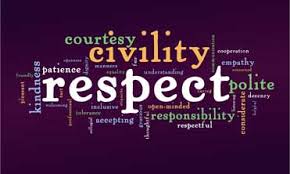Managing meetings for Civility
 In a recent editorial “We are neighbors not enemies,” the Vail Daily praised Town of Gypsum Mayor Steve Carver, who did something quite unusual before a contentious hearing.
In a recent editorial “We are neighbors not enemies,” the Vail Daily praised Town of Gypsum Mayor Steve Carver, who did something quite unusual before a contentious hearing.
It was the developers’ second attempt in 2017 following a hearing Carver later described as full of “hatred and unruly people that just didn’t start off good.” That first proposal was denied on a 3-3 split vote. Unable to attend that first meeting, Carver, as owner of Big Steve’s Towing, was occupied on Vail Pass that winters night. This summer, the developer adjusted the project by reducing the density and reapplied. That this developer manages some very large rental projects in Avon from which some opponents were proud to have moved their families away from into homeownership in Gypsum, didn’t help their case.
Carver, when interviewed said, “I told the crowd there would be no bad mouthing or cussing; don’t address the crowd, the developer or staff, address the council.”
“In short, the lines were drawn and the meeting was ripe for confrontation,” noted the Daily, but before the hearing started, the 4 term Mayor did something he had never done before. He asked the crowd to take 5 minutes, stand up up and introduce yourselves to your neighbors.
Public hearings, the right to testify, the right to due process for an applicant in a transparent, public process are hallmarks of our civil society that get a regular workout in our local jurisdictions. Yet on a national level, we seem unable to interact without name-calling. Community leaders have a golden opportunity to facilitate that increasingly rare thing—a civil discourse.
Learning to do so can take learning from painful experiences. How do we respect each other and the process when the decision has no right or wrong answer? The NWCCOG Council had a taste of that challenge recently in Grand Lake where they presided over a complex “208 water quality” hearing with a room filled with well-prepared residents whom showed up on behalf of a single outcome—clearer water in Grand Lake—with widely varying opinions about the course of action to best achieve that outcome.
Civility is a question contemplated by the City of Craig Mayor Jim Ponikvar who spoke recently at the CML conference about how desperately his community needed to “changed the culture and the conversation,” which they did through an extended public conversation about an iconic book called Thirteen Ways to Kill Your Community, by Doug Griffiths and Kelly Clemmer.
In Gypsum, Carver’s 5 Minute Method provided a coup de grace to incivility at one hearing. With the tone of the conversation nationally at fever pitch in social media and in places like Charlottesville, Virginia, navigating conversation toward civility may just be a local leaders’ most important role.
